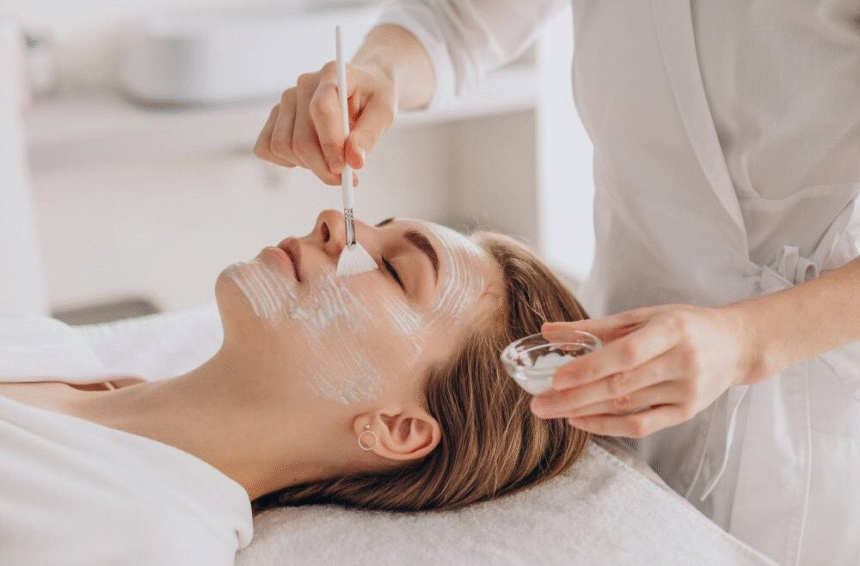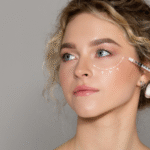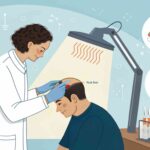Introduction
Dermatology is the branch of medicine that deals with the skin, hair, and nails. It includes diagnosing, treating, and preventing a wide range of conditions—from acne and eczema to skin cancer. Because the skin is the body’s largest organ and acts as a protective barrier, its health plays a vital role in overall well-being.
What Does a Dermatologist Do?
A dermatologist is a medical doctor trained to:
- Diagnose skin, hair, and nail disorders
- Treat both common and rare skin conditions
- Perform procedures like biopsies, mole removal, and laser therapy
- Offer guidance on skin care, aging, and sun protection
They handle both medical and cosmetic concerns, helping patients maintain healthy and youthful skin.
Common Conditions Treated by Dermatologists
Dermatologists treat a variety of conditions, including:
- Acne
- Psoriasis
- Eczema
- Skin infections (bacterial, viral, fungal)
- Hair loss and scalp issues
- Nail disorders
- Skin cancer (melanoma, basal cell carcinoma, etc.)
These conditions can range from mild to life-threatening, making early diagnosis essential.
Importance of Early Diagnosis
Skin symptoms are often the first sign of internal problems. A dermatologist can identify:
- Rashes caused by allergies or autoimmune diseases
- Skin discoloration related to liver or kidney issues
- Moles that may develop into melanoma
Prompt evaluation leads to early treatment, preventing complications or serious disease progression.
Role in Skin Cancer Prevention
One of the most critical roles of dermatology is in detecting skin cancer. Dermatologists:
- Examine suspicious moles and growths
- Perform biopsies when needed
- Educate on sun safety and UV protection
- Provide regular skin checks for high-risk individuals
Early detection of skin cancer significantly increases survival rates.
Support for Mental and Emotional Health
Chronic skin conditions like acne, eczema, or psoriasis can impact:
- Self-esteem
- Social interactions
- Emotional well-being
Dermatologists not only treat the physical symptoms but also understand the psychological effects, improving patients’ confidence and quality of life.
Cosmetic and Anti-Aging Treatments
In addition to medical care, dermatologists offer cosmetic services such as:
- Chemical peels
- Botox and fillers
- Laser treatments
- Scar revision
These procedures help patients achieve healthier, more youthful-looking skin and can enhance emotional well-being.
Education and Skin Care Guidance
Dermatologists educate patients on:
- Daily skincare routines
- Choosing the right products
- Sun protection
- Managing sensitive skin
Personalized advice helps people avoid irritants and maintain glowing, healthy skin.
Conclusion
Dermatology is essential to maintaining both the health and appearance of the body’s largest organ—your skin. From treating acne to detecting life-threatening cancers, dermatologists play a vital role in our overall health. By seeking regular skin evaluations and professional care, individuals can prevent disease, manage chronic conditions, and feel more confident in their skin.
FAQs
What is dermatology mainly concerned with?
It focuses on diagnosing and treating conditions related to the skin, hair, and nails.
When should I see a dermatologist?
If you have persistent skin issues, unusual moles, severe acne, hair loss, or nail changes, it’s time to consult a dermatologist.
Is dermatology only for skin diseases?
No, it also includes cosmetic treatments, anti-aging care, and managing hair and nail problems.
Can dermatologists help with allergies?
Yes, especially if you have skin allergies or reactions like contact dermatitis or hives.
How often should I get a skin check?
Annually for most people, but more frequently if you have a history of skin cancer or lots of moles.
















